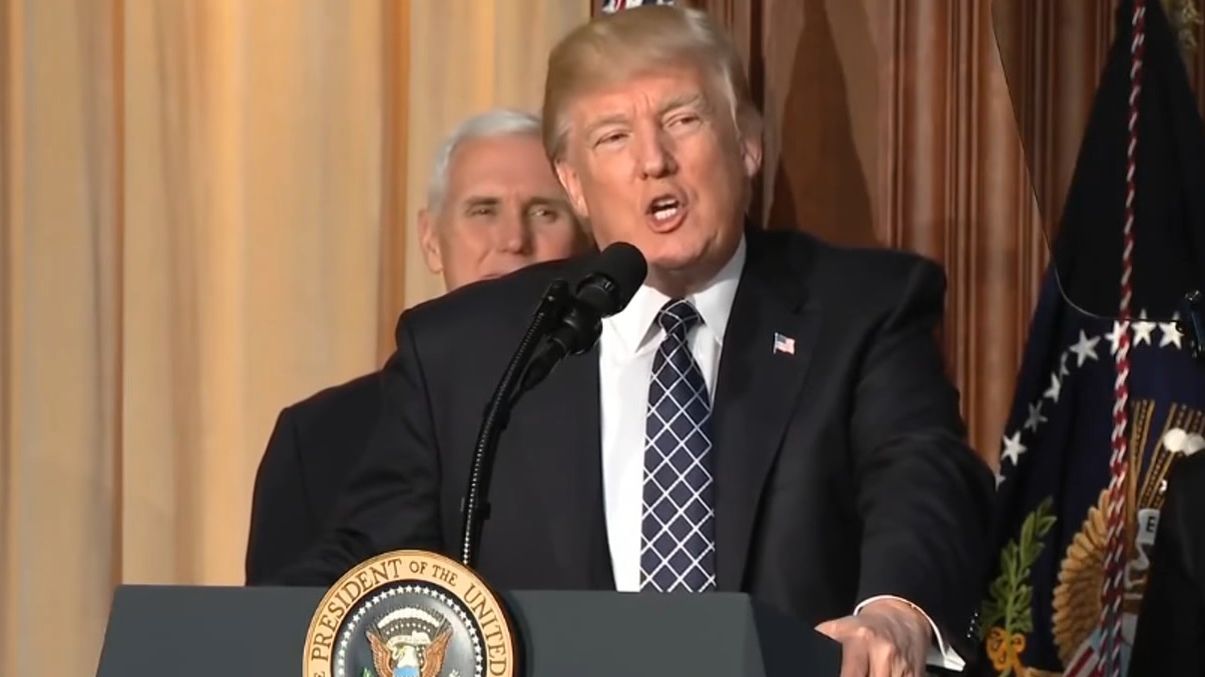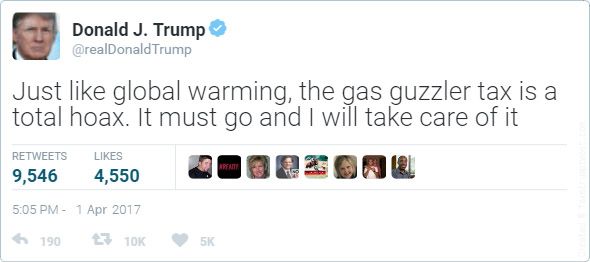U.S. President Donald Trump wants to remove the Gas Guzzler Tax, according to a tweet he made today. Having called global warming a hoax in the past and promised to take the U.S. out of the historic Paris climate agreement, Trump now thinks that the Gas Guzzler Tax is also a hoax that must be eliminated.
"Just like global warming, the gas guzzler tax is a total hoax. It must go and I will take care of it," he said on his Twitter account.
Granted, a short statement on social media doesn't necessarily mean that Trump will actually remove the tax, especially given that he has changed his mind and denied his most controversial affirmations on many occasions, but he did sign an Energy Independence Executive Order that will reverse Obama's Clean Power Plan to reduce carbon emissions. Compared to that, eliminating the Gas Guzzler Tax is child's play.
Needless to say, Trump's tweet is far from surprising. In 2012, he used social media to claim that the concept of global warming "was created by and for the Chinese in order to make U.S. manufacturing non-competitive," while in 2013 he called it "a total, and very expensive hoax. At some point he even went as far as to call global warming "bullshit" simply because the U.S. had "record low temps" and the "coldest weather in years" in 2014. His aggressive diatribe toward global warming continued in the presidential campaign. As soon as he was elected, he named a climate change skeptic to lead the EPA and announced plans to revisit fuel standards. Trumps administration also said it plans to cut funds for climate research because it is "a waste of money."
All told, eliminating the Gas Guzzler Tax seems like something Trump may want to do in the near future, but it remains to be seen whether he will find enough support to actually turn yet another tweet into law.
Continue reading for the full story.
Trumps's Tweet
What Is the Gas Guzzler Tax?
The Gas Guzzler Tax was established by Congress in the Energy Tax Act of 1978 to discourage the production and purchase of fuel-inefficient vehicles and it is assessed on new cars, trucks, and SUVs that do not meet required fuel economy levels. The lower the mileage, the higher the tax. The Gas Guzzler Tax is one of the reasons why automakers no longer build gas guzzling engines like they did in the 1960s and especially in the early 1970s.
What Happens if the Tax Is Removed?
For starters, several high-performance cars will no longer be subject to a tax that adds thousands of dollars to the final sticker. Examples include all Aston Martins, Rolls-Royces, Bentleys, Ferraris, Lamborghinis and Maseratis, but also cars like the BMW M5 and M6, V-8-powered Dodge Challengers, Cadillac CTS-V, Chevrolet Corvette, Mercedes-AMG S65, Porsche 911 GT3 and GT3 RS, and the Ford Shelby GT350 Mustang. It's also tempting to believe that car makers will stop developing vehicles and engines with increasingly better fuel economy in mind, but this isn't necessarily the case. However, it may slow down development of cars running on electric power and hydrogen.


